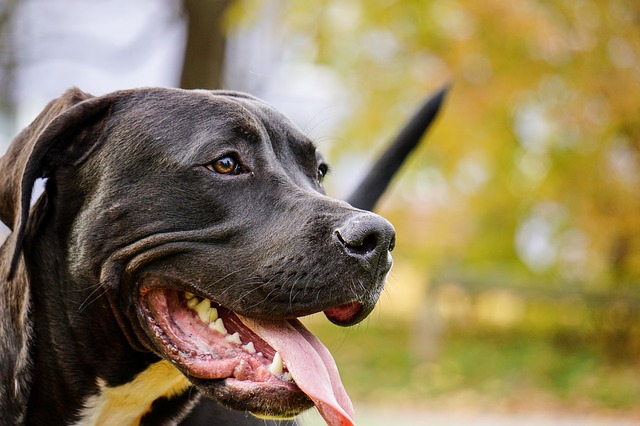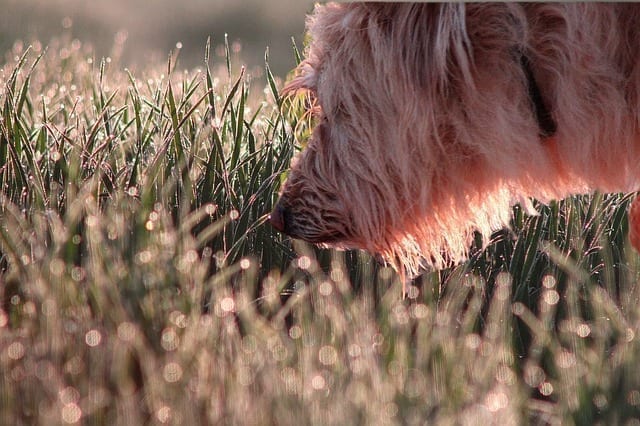There is so much information out there about dogs, how do we know what to believe? While some are old-wives tales, others have been proven true. But before we act upon our own beliefs and feelings, we should make sure that we’re acting on facts and truth – after all, the dogs we’re thinking about might be depending on us to save their lives. Because of this, we’ve compiled a list of myths that you need to stop believing right now!
#1 – Pit Bulls Lock Their Jaws

It’s been long said that Pit Bulls can lock their jaws when they attack, and this is simply not the case. Jaws don’t “lock,” because it’s impossible for them to do so. They have the same anatomy as every other canid on the planet, with no special mechanisms or functions that make them any more vicious than others.
#2 – Mixed Breeds Are Healthier Than Purebreds

This is one of the most common myths out there. Mixed breed dogs are not healthier than purebreds by any means. First and foremost, no genetic health testing is ever done on mixed breeds before they’re bred, which increases their chances of developing genetic diseases. In fact, in a study run by UC Davis for 24 different genetic disorders, there was little to no difference between the purebred and mixed bred dogs tested.
#3 – A Dry Nose Equals a Sick Dog

Dry noses on dogs don’t automatically indicate illness. A dog’s tear ducts empty out into their noses, which typically leaves them wet, but certainly doesn’t mean there’s a problem when it’s dry. Generally speaking, your dog’s nose is really not a good indicator of his health status.
#4 – Dog Mouths Are Cleaner Than Human Mouths

While it would be nice to assume puppy kisses are cleaner than people kisses, it’s really just not the case. That doesn’t mean their mouths are dirtier, it just means that both are dirty! Dogs and people have all sorts of bacteria in their mouths to help keep them healthy, and while some are not species-specific, many are and won’t be detrimental to humans when you get that slobbery smooch across your face.
#5 – Dogs Only See in Black & White

While veterinarians used to believe this to be true, recent studies have proved otherwise. We can’t test dogs very well for color vision, but behavioral studies have shown that dogs are capable of seeing shades of blue and yellow, but not any colors from the range of blue to green.
#6 – For Every 1 Human Year, Dogs Age 7 Years

It’s true that dogs age at a faster rate than humans, but it’s difficult to calculate this difference. The range from breed to breed will provide more answers than you’d even imagine, so coming up with the number 7 was a very simplified way of comparing the average lifespan of all dogs to that of humans. Dogs mature differently and age differently, often with the smaller breeds going faster than the larger ones. That said, the smaller breeds also typically have longer lifespans, so you can see how this gets complicated!
#7 – Some Dog Breeds Are 100% Hypoallergenic

The sad fact is that no dog breed is truly hypoallergenic. There are, however, breeds that shed very little and therefore create a much lower allergic response, or none at all, for those who suffer from dog allergies. To understand how this works requires you to understand that people are not actually allergic to the fur of dogs, but to their saliva. This saliva gets onto the fur and dander of the pet when they groom themselves and therefore sheds into the environment and onto the human – causing the allergic response. Since all dogs shed, your best bet will be to look for breeds that shed very minimally.
#8 – Dogs Only Eat Grass When They’re Sick

While many dogs will vomit after eating grass, it’s not safe to assume that your pup is eating grass to intentionally induce vomiting. Some dogs just love to eat grass, for whatever reason. Even if eating grass does make your dog vomit, it’s really not cause for alarm. Grass is safe to eat as long as it hasn’t been treated with any pesticides.
 Toledo, United States.
Toledo, United States.